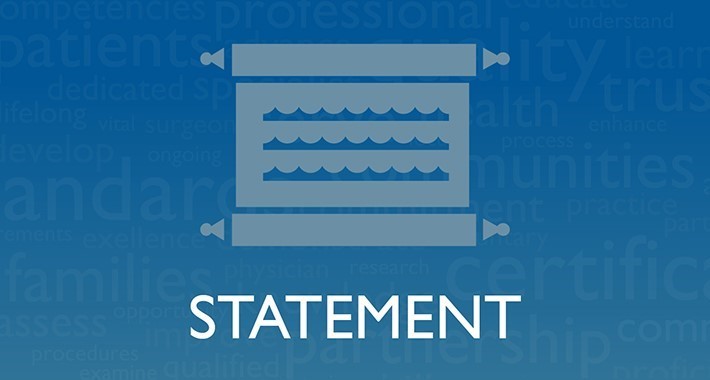
On the anniversary of the Opinion by the Supreme Court of the United States in Thomas E. Dobbs, et al. v. Jackson Women’s Health Organization, et al., which reversed Roe v. Wade and Planned Parenthood of Southeastern Pennsylvania v. Casey, the American Board of Medical Specialties (ABMS) renews its belief that patients have a fundamental right to medical care provided by physicians, medical specialists and health care providers in a manner that is free of legislative and governmental interference. ABMS continues to maintain and support the fundamental premise that all medical care should represent a shared decision agreed upon between a patient/guardian and a health care provider.
Since the issuance of the Supreme Court’s Opinion, women in various states have been denied the privacy and the right to pursue access to reproductive health care and abortion delivered according to the standards of the specialty. In addition, this ruling has greatly disrupted the education and training programs for women’s health care physicians, medical specialists and health care providers, causing serious public health concerns due to a lack of access to appropriate care in some areas of the country. In addition, physicians and medical specialists have been placed in an untenable position facing criminal charges or loss of licensure for providing appropriate, medically necessary care to their patients based upon the established and defined standards of their specialty.
ABMS supports board certified physicians and medical specialists in their adherence to their specialty’s standards for medical care and professionalism, and maintains that legal interference that lacks a foundation in specialty-based standards of care is inappropriate and dangerous, placing the health and safety of patients in jeopardy. ABMS supports its Member Boards in not requiring reciprocal certification action when a license has been revoked or otherwise sanctioned solely because the appropriate, medically necessary care provided to an informed and consenting patient was in opposition to a mandate lacking scientific, safety, or specialty-based justifications.
Download this statement as a PDF.
-
Read More:
- Public Health |
- Statements |
